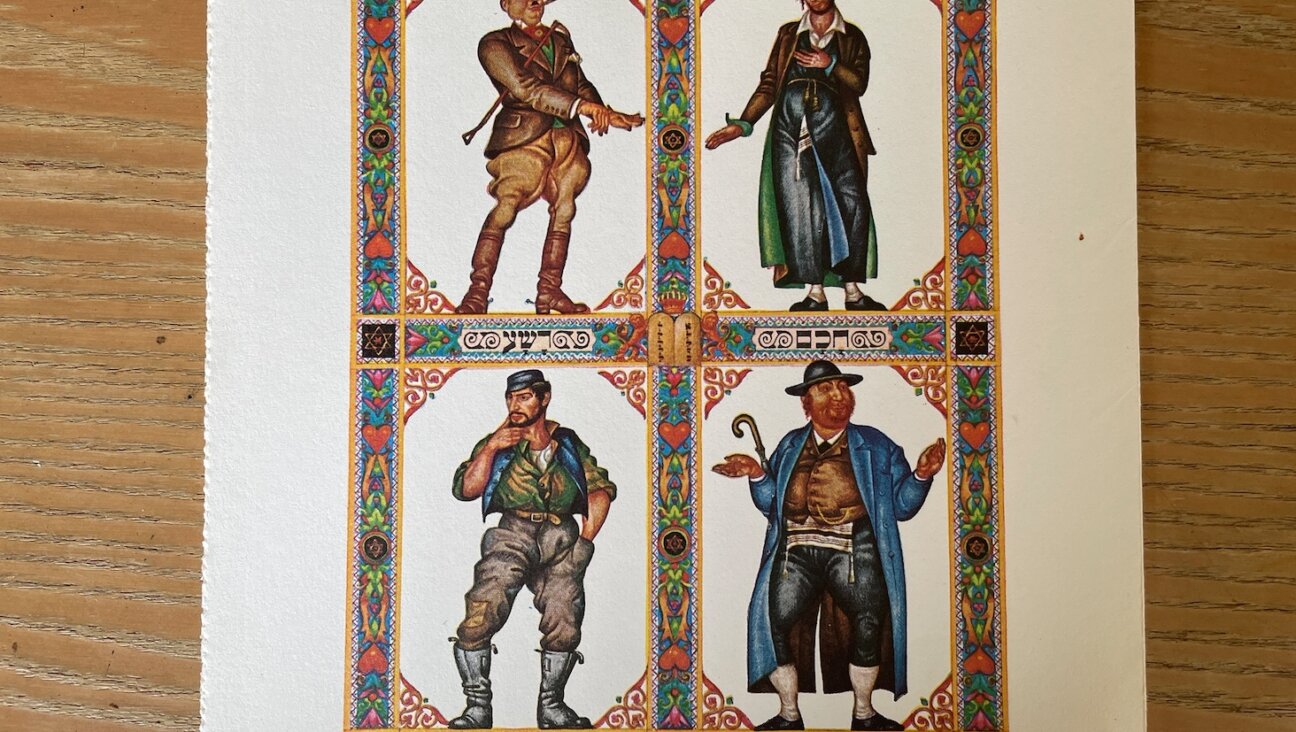Daniel Aaron, Harvard Prof Who Taught JFK, Dies at 103

Image by harvard university
BOSTON – Daniel Aaron, the son of Russian-Jewish immigrants who pioneered the field of American studies and taught the likes of John F. Kennedy, has died at 103.
A prolific writer and hugely influential intellectual, Aaron, who died on Saturday in Cambridge, Massachusetts, is acclaimed for combining his interests in history and literature.
The founding president of the Library of America, which republishes works by classic American writers for broad audiences, Aaron was the Victor S. Thomas professor emeritus of English and American literature at Harvard, where he taught for a dozen years before taking on the emeritus title. Previously he taught for 30 years at Smith College. In 2011 he received the National Humanities Medal.
Aaron’s colleagues and friends spanned a century of American luminaries including Robert Frost, Ralph Ellison, Edmund Wilson and Saul Bellow.
In the arc of his academic career, Aaron’s students included such noteworthy names as Kennedy, Norman Mailer, Walter Isaacson and Betty Friedan, who included Aaron in the acknowledgments of her book “The Feminine Mystique.”
Aaron, a Chicago native, was raised by relatives as a young boy following the death of his parents. He graduated from the University of Michigan in 1933 with a degree in English. As a graduate student at Harvard in the late ’30s, Aaron was persuaded to switch his advanced studies major to the then newly forming American studies program when it was suggested that a Jewish student would find the interdisciplinary subject more “intellectually congenial,” The New York Times reported.
In his 2007 memoir, “The Americanist,” Aaron explained that he found intellectual purpose through the lens of World War II, as noted in the Harvard Gazette: “The United States suddenly loomed as the last democratic bastion in the world after the German occupation of France in 1940. About then, I began to feel that it might be almost as important to understand American civilization as to preserve it.”
Among his highly acclaimed books are “Men of Good Hope: A Story of American Progressives” (1951) and “Writers on the Left: Episodes in American Literary Communism” (1961), that included notable Jewish writer Joe Freeman, founding editor of the Partisan Review. “The Unwritten War: American Writers and the Civil War” (1973), was a finalist for the National Book Award.
As a historian, these books represented Aaron’s most insightful contribution “to the intersection of politics and ideas … and then politics and literature,” Stephen Whitfield, Max Richter professor of American Civilization at Brandeis University, where Aaron taught as a visiting professor for one semester, told JTA.
While Whitfield had no knowledge of Aaron having any involvement in Jewish affiliations, he noted the scholar’s writings “all bespoke of a secular Jewish atmosphere and liberal politics,” he wrote in an email.
While Whitfield did not meet with Aaron frequently, he left a strong impression.
“He had an exceptional gift for friendship, across generations, and was as unpretentious and unflappable as he was serious about the life of the mind,” he said.
Well into his 90s, when Aaron continued to work at his campus office, he was known to ride his bike to campus. In 2015 he published “Commonplace Book, 1934-2012.”
His wife, the former Janet Summers, died in 2003. Aaron is survived three children, a granddaughter and two great-grandchildren. A memorial service will be held at Harvard in the fall.

I hope you appreciated this article. Before you go, I’d like to ask you to please support the Forward’s award-winning journalism this Passover.
In this age of misinformation, our work is needed like never before. We report on the news that matters most to American Jews, driven by truth, not ideology.
At a time when newsrooms are closing or cutting back, the Forward has removed its paywall. That means for the first time in our 126-year history, Forward journalism is free to everyone, everywhere. With an ongoing war, rising antisemitism, and a flood of disinformation that may affect the upcoming election, we believe that free and open access to Jewish journalism is imperative.
Readers like you make it all possible. Right now, we’re in the middle of our Passover Pledge Drive and we still need 300 people to step up and make a gift to sustain our trustworthy, independent journalism.
Make a gift of any size and become a Forward member today. You’ll support our mission to tell the American Jewish story fully and fairly.
— Rachel Fishman Feddersen, Publisher and CEO
Join our mission to tell the Jewish story fully and fairly.
Only 300 more gifts needed by April 30
























